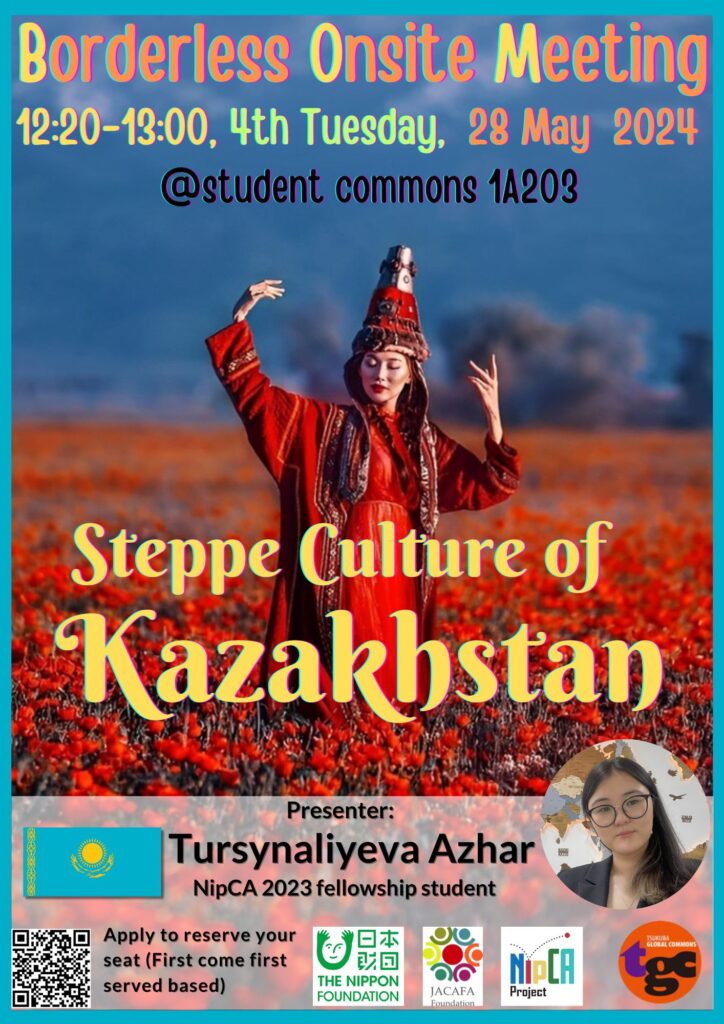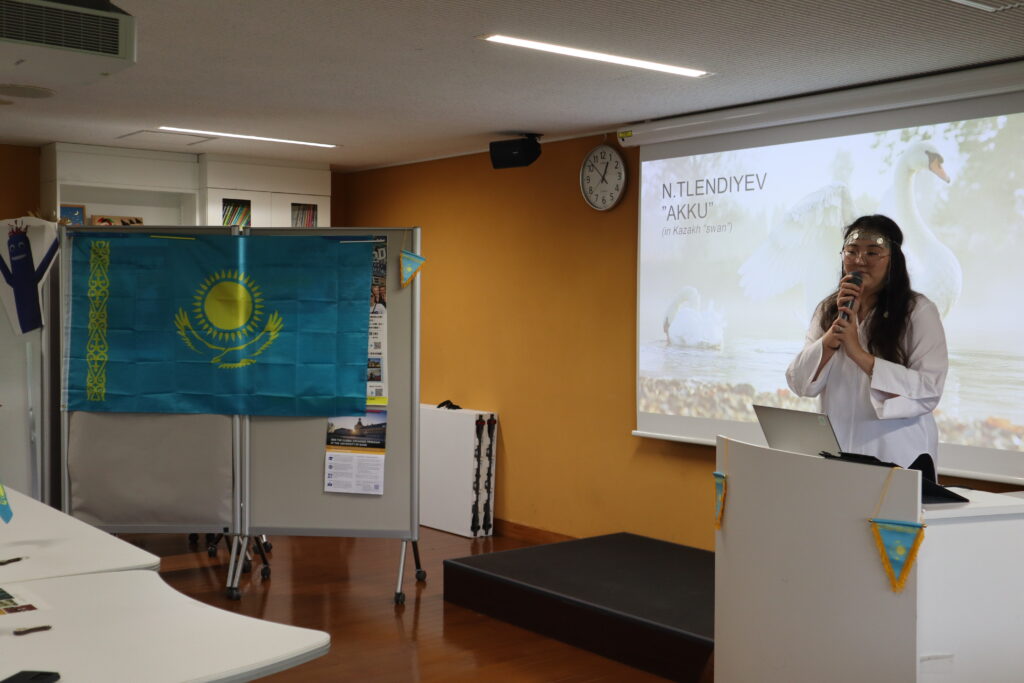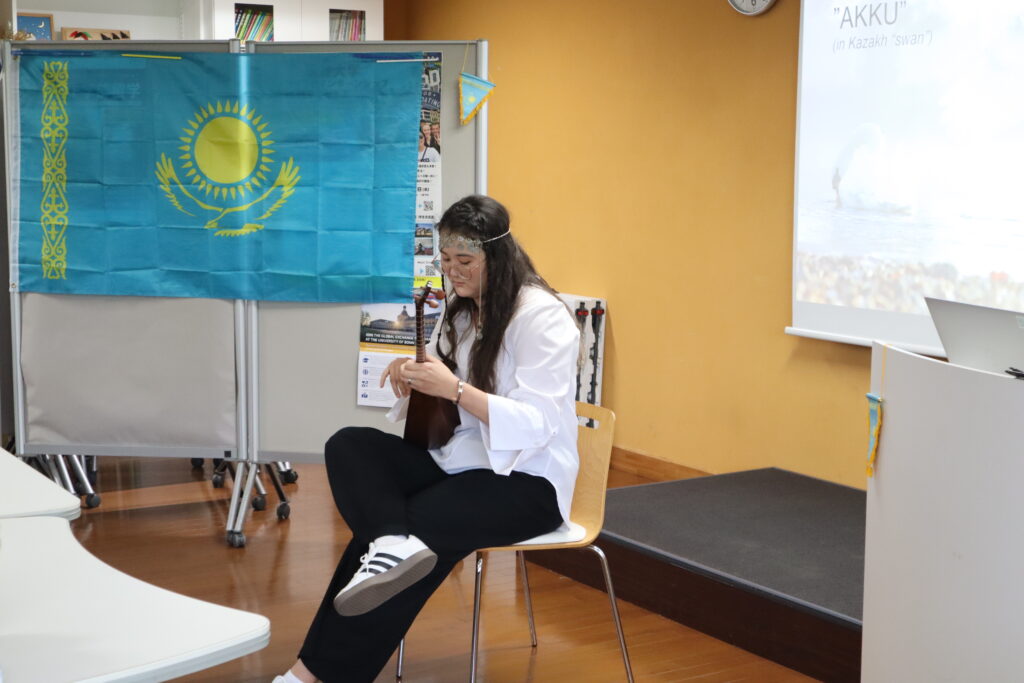 The 7th Borderless Onsite Meeting took place on Tuesday, May 28, 2024, in association with Global Commons.
The 7th Borderless Onsite Meeting took place on Tuesday, May 28, 2024, in association with Global Commons.
This time, Ms. Tursynaliyeva Azhar, a 5th cohort NipCA fellow from Kazakhstan, presented on the theme of “Steppe Culture of Kazakhstan”.
Kazakhstan is an oil and natural gas producing country, and its capital, Astana, has a landscape reminiscent of a futuristic city designed by Mr. Kurokawa Kisho. However, this time the presentation focused more on the steppe culture of Kazakhstan rather than on those aspects.
The steppe, which is the central theme of the presentation, are an important presence for the people of Kazakhstan, as they form the basis of their lives, nature, history, culture, and spirit. “Saryarqa”, a group of steppe and lakes in North Kazakhstan, famous as a natural heritage site, is a famous bird-watching spot and is also considered the birthplace of horse breeding. The steppe was also once the campsite of Genghis Khan’s warriors and the home of the Kazakh Khanate. Furthermore, it has played an important role as a major trade route along the Silk Road. Orientalist scholar Ualikhanov described the steppes as “vast and free space, the natural homeland of the Kazakh people, a source of people’s strength and a symbol of spiritual freedom.” In addition, the presentation also introduced the steppe landscape through the work of Kazakh painter KASTEEV Abylkhan.
At the end of the presentation, Azhar-san played the Dombra, a traditional Kazakh instrument, and performed the song “AKKU” (which means “Swan” in Kazakh). This gave participants a firsthand taste of Kazakhstan’s culture.





